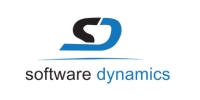As Kenya’s manufacturing sector embraces digital transformation, the need to overcome data silos becomes paramount. These data silos hinder data-driven decision-making, which is crucial for succeeding in a competitive market. Fortunately, having a Manufacturing ERP in Kenya, particularly Microsoft Dynamics 365 Business Central, offers an integrated approach to managing data efficiently and driving data-driven decision-making.
This is where Software Dynamics, a leading provider of ERP and software solutions in Africa, comes into play. Specializing in Microsoft Dynamics 365 Business Central, we empower manufacturers of all sizes to streamline processes, reduce manual tasks, and unlock valuable insights from their data.
This article will first provide a brief overview of the manufacturing landscape in Kenya. Additionally, it will discuss the importance of data-driven decision-making and the role of ERP solutions in overcoming data silos. Furthermore, it will explore the key features and capabilities of Dynamics 365 Business Central relevant to Kenya’s manufacturing sector and the benefits of ERP in Kenya’s manufacturing.
Understanding the Challenge of Data Silos in Kenya’s Manufacturing
Data silos are specific pockets of information that remain isolated within different departments or systems. As a result, data remains fragmented and inconsistent, leading to various challenges in manufacturing operations. In Kenya’s manufacturing landscape, where several diverse sectors like food and beverage, textiles, pharmaceuticals, and automotive assembly play crucial roles, addressing this problem is critical.
Importance of Data-Driven Decision Making
Data-driven decision-making is critical for manufacturers in Kenya to stay ahead in today’s competitive market. By gaining valuable insights into production processes, supply chain management, and customer demands, manufacturers can optimize operations, reduce costs, and identify new areas for growth. Moreover, data-driven decision-making enables proactive, informed decision-making, particularly when facing the unpredictable challenges that arise within the industry.
Role of ERP Solutions in Overcoming Data Silos
ERP solutions are integral in breaking down data silos and promoting data integration. By consolidating various operations within a single platform, ERP systems like Microsoft Dynamics 365 Business Central offer seamless data flow across departments, encouraging collaboration and enhancing data accuracy. Simultaneously, real-time reporting becomes accessible, empowering manufacturers to make proactive, data-driven decisions that drive operational excellence and competitive advantage.
The Manufacturing Landscape in Kenya
The manufacturing industry in Kenya continues to evolve, offering significant contributions to the country’s economy. Given the growing importance of data-driven decision-making, Kenya’s manufacturers must address challenges like inefficient supply chain management, high production costs, inconsistent power supply, and evolving regulatory requirements. As a result, tackling these issues requires embracing modern technologies that will facilitate enhanced productivity and operational efficiency.
Overview of the Manufacturing Industry in Kenya
Kenya’s manufacturing industry consists of diverse sectors, including food and beverage, textiles, pharmaceuticals, construction materials, metal, and automotive assembly. By prioritizing export-oriented production, the sector holds exciting potential for growth and international competitiveness. However, maximizing this potential needs current challenges, like data silos, to be addressed and overcome using modern digital solutions.
Key Challenges Faced by Manufacturing Companies in Kenya
Manufacturers in Kenya face a myriad of challenges, such as high energy costs, poor infrastructure, inefficient supply chains, limited access to finance, and stringent regulatory requirements. These challenges necessitate modern, technology-driven solutions to enhance productivity and operational efficiency, promoting competitive advantage for Kenya-based manufacturers.
Need for Manufacturing ERP in Kenya
In today’s dynamic business landscape, modern solutions are essential for Kenya’s manufacturing companies to thrive. By streamlining processes, enabling agile decision-making, and supporting sustainable growth, these solutions can empower manufacturers to overcome challenges and capitalize on growth opportunities.
Therefore, embracing modern technologies like Business Central ERP ensures that Kenyan manufacturers optimize operations, reduce costs, and meet ever-evolving consumer demands. As the digital age advances, it presents novel opportunities for companies to leverage data analytics and AI-driven solutions to drive manufacturing excellence.

Overview of Dynamics 365 Business Central
Microsoft Dynamics 365 Business Central is a multifaceted ERP solution designed for small- to mid-sized manufacturing organizations. The unified platform combines financial management, supply chain optimization, production planning, HR and payroll, and business intelligence, offering businesses a comprehensive and seamless approach to managing their day-to-day activities.
Key Features and Capabilities Relevant to Kenya’s Manufacturing Sector
Microsoft Dynamics 365 Business Central provides standout features for Kenya’s manufacturing companies, including demand forecasting, production planning, quality control, and real-time analytics. These features empower manufacturers to optimize inventory levels, plan for operational efficiency, monitor production standards, and gain valuable insights. As such, organizations can analyze trends, streamline workflows, reduce waste, and enhance customer experiences.
Benefits of Manufacturing ERP in Kenya and Implementation Considerations
- Breaking Data Silos with Integrated Information Systems
Dynamics 365 Business Central enables manufacturers to break down data silos by integrating information across departments. By consolidating data from various sources, it creates a unified, up-to-date view of operations, enabling better decision-making. The result? Increased visibility, minimizing redundant tasks, and streamlining workflows, thereby reducing operational costs.
- Enhancing Operational Efficiency and Agility
Manufacturers in Kenya can significantly boost operational efficiency and agility using Business Central. With flexible module configurations, built-in process automation, and real-time analytics, this solution caters to evolving production demands while reducing manual data input and subsequent errors. Moreover, Microsoft’s cloud infrastructure offers seamless scalability and integration with other Microsoft products, maximizing operational flexibility and responsiveness to changing business conditions.
- Improving Quality Control and Compliance
Having a manufacturing ERP in Kenya enables Kenyan manufacturers to apply advanced quality control tools to monitor production standards and ensure adherence to regulatory requirements. Featuring lot traceability, serial and batch number tracking, and automated quarantine capabilities, the solution ensures that products meet the highest quality benchmarks. It allows customized validation rules, security roles, and reporting to streamline compliance management, enabling manufacturers to focus on their core business operations.
Factors to Consider When Implementing Manufacturing ERP in Kenya
- Set clear goals and expectations: Define measurable objectives aligned with your business vision to guide ERP implementation and facilitate long-term success.
- Secure executive buy-in: Gain support from top decision-makers to mitigate risks, facilitate resource allocation, and establish strong leadership during the transition.
- Emphasize change management: Prioritize effective communication and manage the expectations of all stakeholders to ensure a smoother transition and accelerated user adoption.
- Perform thorough vendor assessment: Select a partner with a proven track record in Your specific industry and consider their resources, competencies, and cultural compatibility with your organization when implementing Dynamics 365 Business Central.
Addressing Common Concerns and Misconceptions
Concern 1: ERP implementation costs are too high Consider that the total cost of ownership includes long-term cost savings arising from improved operational efficiency, enhanced productivity, and reduced errors. Dynamics 365 Business Central offers affordable, tailored subscription plans, and rapid implementation timelines, making it an attractive investment for Kenyan manufacturers.
Concern 2: ERP systems cannot adapt to unique business requirements Dynamics 365 Business Central is a highly customizable solution built on a flexible, scalable platform. Kenyan manufacturers can leverage the extensive ecosystem of third-party add-ons and partner-led enhancements to address specific business needs while retaining ease of integration with other applications.
Steps to a Successful Implementation for Manufacturing ERP in Kenya
- Define your business case and scope.
- Create a project plan with milestones and allocate sufficient resources.
- Establish realistic timelines for implementation and configuration.
- Conduct comprehensive training for all relevant employees.
- Validate the solution through pilot testing before going live.
- Implement and continuously monitor the solution, identifying opportunities for further optimization.
- Encourage ongoing user feedback and adjust your strategy to maximize returns and ensure user satisfaction.

Recap of How ERP Systems Can Help Kenya’s Manufacturing
Dynamics 365 Business Central helps Kenyan manufacturing companies by breaking down data silos, enhancing operational efficiency, improving quality control, and enabling successful implementation by addressing concerns and misconceptions. The platform offers a powerful and integrated solution for businesses to take charge of their manufacturing operations and drive growth.
After examining the role of ERP systems in Kenyan manufacturing, the significance of Dynamics 365 Business Central as a transformative solution becomes evident. By integrating information islanded in data silos, businesses can:
- Eliminate inefficiencies by replacing manual tasks and redundancies with automated, real-time workflows, saving valuable time and resources.
- Strengthen decision-making by tapping into comprehensive, accurate, and timely data, promoting data-driven strategies and cost-effective practices.
- Reinforce quality assurance and compliance measures by leveraging advanced traceability, tracking, and automated quarantine features, ensuring consistent top-quality products and adherence to regulatory requirements.
The future outlook of ERP systems in Kenyan manufacturing is promising. With the expanding influence of digital transformation, 5G networks, and Industry 4.0, stakeholders from across the industry recognize the significance of intelligently integrated ERP systems.
Adopting advanced, and flexible solutions like Dynamics 365 Business Central empowers manufacturers for resilient growth in Kenya’s dynamic business landscape.
To maximize the potential of ERP systems in Kenyan manufacturing, consider these recommendations:
- Ensure a nuanced understanding of individual organizational demands, and design a robust implementation strategy accordingly.
- Demystify potential misconceptions regarding the complexity and costs, reinforcing the long-term rewards offered by ERP systems with clear communication.
- Engage experienced, professional partners and subject-matter experts for deployment and training to optimize ROI and mitigate project risks.
- Invest in ongoing development and regular upgrades. Maintain a competitive edge and expand the system’s utility in line with evolving industry trends.
Kenya’s manufacturing sector is set to boost productivity and success with a data-driven, committed, and integrated approach to ERP systems.
Why Choose Software Dynamics as Your ERP Provider?
Software Dynamics is well-equipped to help Kenya’s manufacturing sector tap into the power of Microsoft Dynamics 365 Business Central. Here are a few reasons why partnering with Software Dynamics can be a game-changer for your business:
- Expertise and experience: Software Dynamics boasts a team of certified and knowledgeable professionals with demonstrated success in implementing ERP solutions.
- Strong local presence: With offices in Kenya, we offer unparalleled proximity to clients, providing personalized consulting and support.
- Comprehensive solutions: We specialize in Microsoft Dynamics 365 Business Central and offer an extensive suite of complementary software solutions.
- Reliable support and maintenance: Software Dynamics ensures client systems operate at peak efficiency through proactive, ongoing support and maintenance services.
Takeaways
In today’s increasingly competitive manufacturing landscape, embracing ERP solutions like Microsoft Dynamics 365 Business Central is imperative. With its expertise, local presence, and comprehensive solutions, Software Dynamics is a reliable provider to help maximize your business’s ERP technology value.
To learn more about Software Dynamics and Microsoft Dynamics 365 Business Central, visit our website today. Take advantage of the opportunities that digital transformation presents. How? Book a FREE consultation, or Email Us to stay ahead of the curve in Kenya’s thriving manufacturing sector.
Make Software Dynamics your trusted partner and start your journey towards better efficiency, productivity, and growth!



